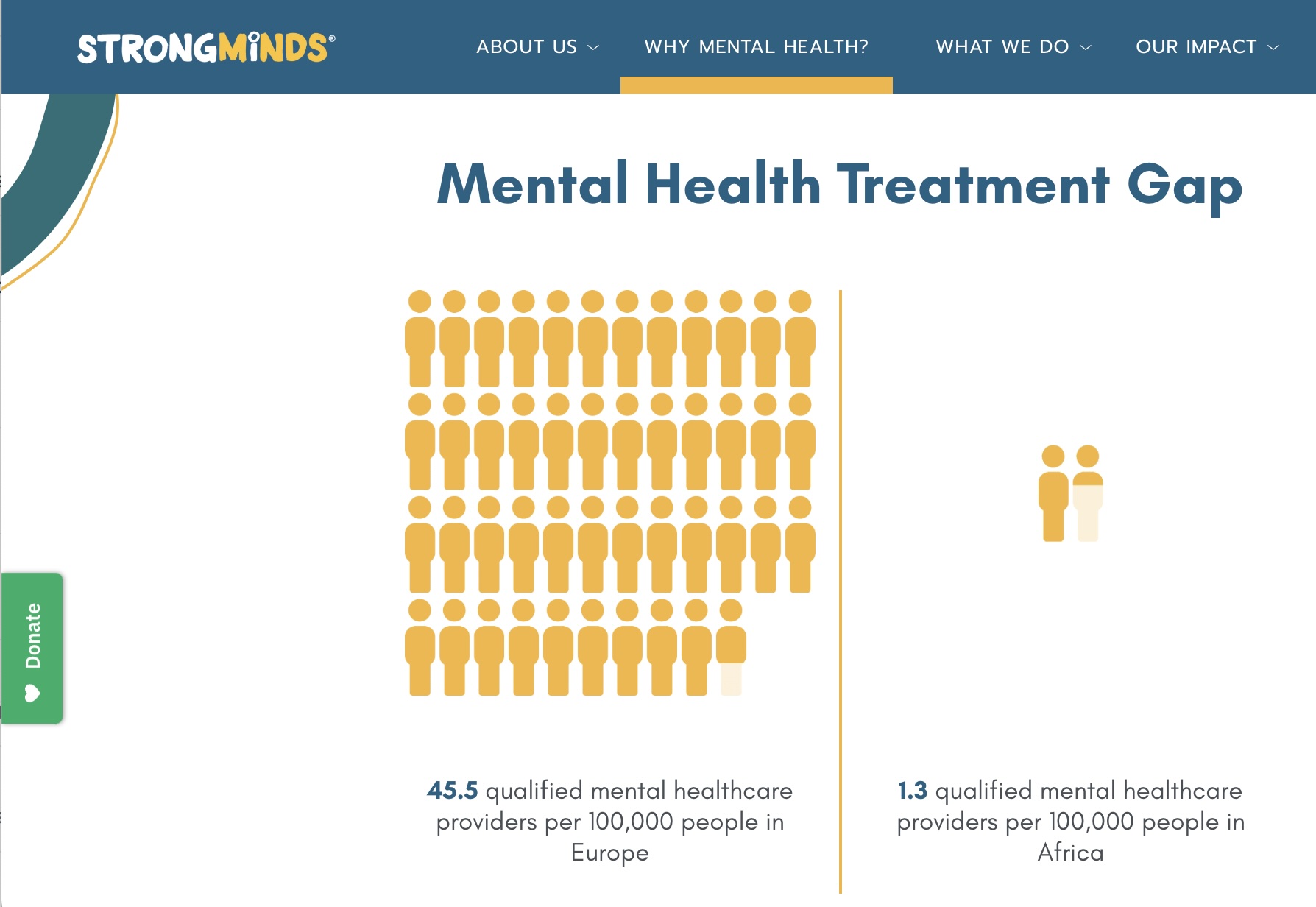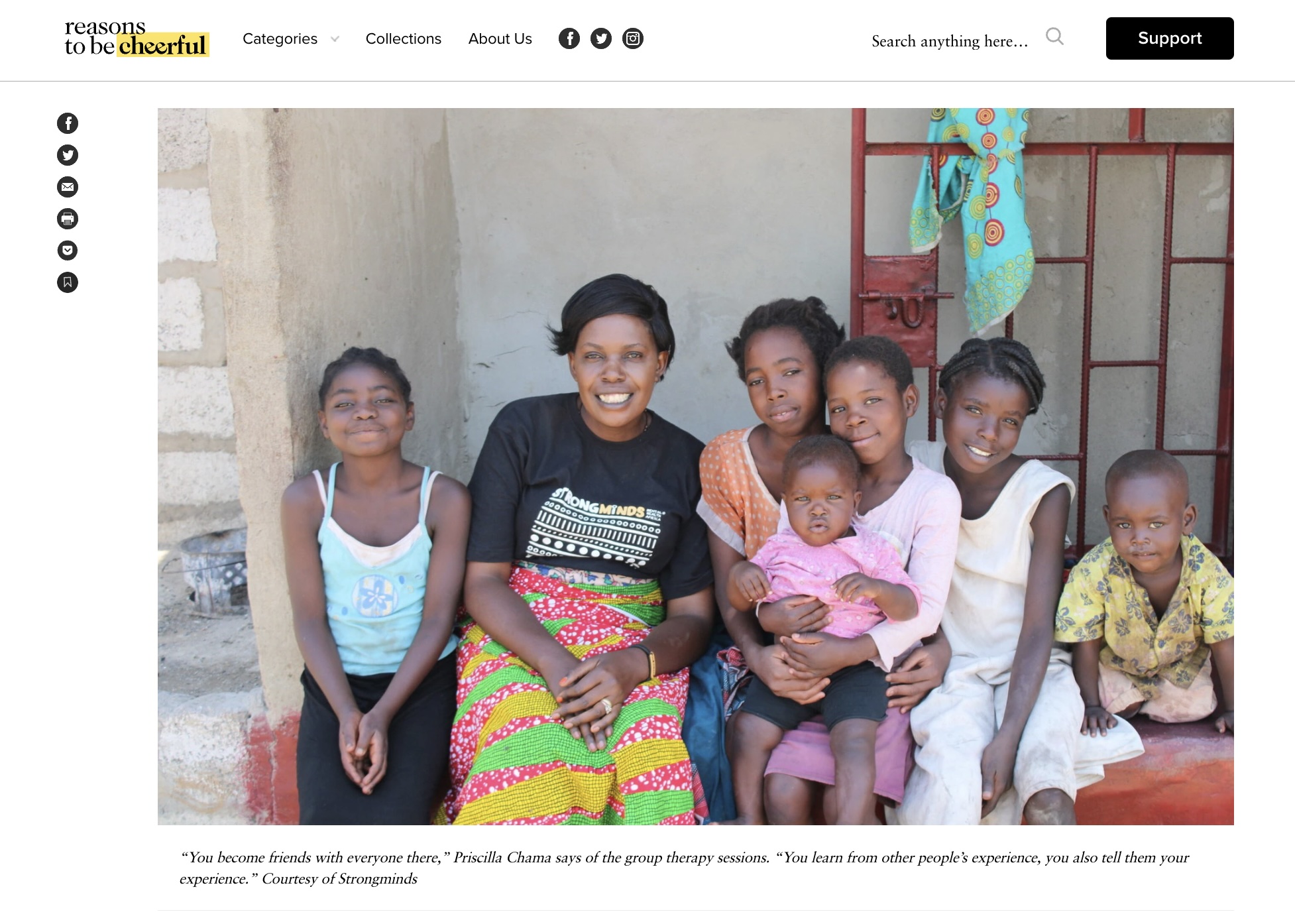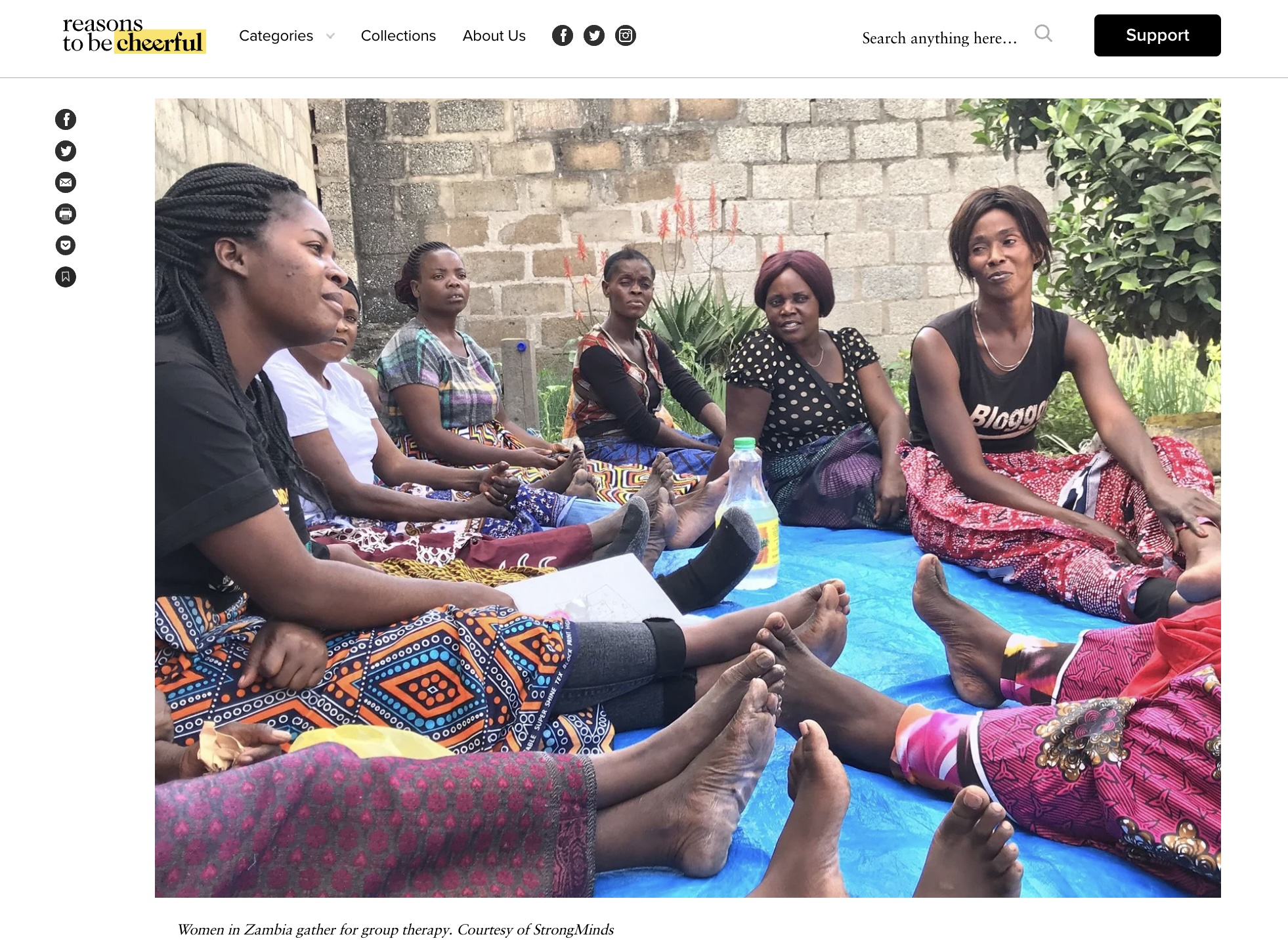When we published our first edition on mental health in 2022, one of the biggest limitations we came up against was: there just aren’t enough professionals. When Costa Ricans—particularly rural Costa Ricans—need a psychologist or a psychiatrist, there just isn’t a way to get them one.
That’s why this story out of Zambia caught our eye when we saw it in the Solutions Journalism Network’s Storytracker. The piece, published in May by Reasons to be Cheerful and written by Elizabeth Hewitt, shows how, in the absence of enough mental health professionals to go around, women in isolated rural areas are coming together to support each other.
How does it work? Could it apply to Costa Rica? And does it meet solutions journalism’s REAL test: a response to a problem with evidence of impact, insights that others can adopt and implement, and limitations or caveats we can avoid?
Let’s take a look.
The problem:
According to the story, as of 2020, Zambia had—wait for it—25 psychologists and psychiatrists for its population of more than 20 million. While the story doesn’t go into detail about national statistics on depression, mental health services, or the wait time for an appointment, StrongMinds.org offers this statistic: there are 45.5 qualified mental healthcare providers per 100,000 people in Europe, and 1.3 in Africa. (Costa Rica has 142 psychologists for every 100,000 people, and 3.9 psychiatrists—though access is still poor, because the numbers of those working in the universal public system are much lower.)

A response:
The nonprofit StrongMinds was founded in 2013 to treat depression in women and adolescents in sub-Saharan Africa. The organization offers a six-week group therapy program in which 10 to 12 people “share their personal experiences, help each other brainstorm strategies to address the triggers contributing to their depression,” and “try out strategies as homework.” Most of the groups are run by volunteers who receive a small stipend; they’re “former StrongMinds clients, teachers, or community health workers.” These volunteers have been trained in participant screening and facilitation.
Evidence of impact:
The story says that nearly 500,000 people have completed the StrongMinds program in Zambia and Uganda—and of those, “three-quarters of participants screened as being free of depression symptoms two weeks after completing it.” The program has recently expanded to Ethiopia, Kenya, and Nigeria, as well as a pilot in the United States.

Adoptable insights:
It is challenging to get people to consider this type of therapy, so the group has found success in going door-to-door in the communities it serves to spread the word about the program and screen potential participants.
Limitations or caveats to avoid:
“Maintaining the quality of StrongMinds treatment as the organization expands is a challenge,” according to the piece. Two tactics the organization is employing to address this challenge are training refreshers for volunteers, and surprise audits to ensure the quality of the services delivered.
Who’s working on this in Costa Rica and Latin America?
We’ve reported extensively at El Colectivo 506 about efforts to train frontline medical workers in basic mental health protocols, but not on a program like StrongMinds where community members themselves are being trained to run group therapy settings. Are you aware of such a program? We’d love to hear from you.
What questions, insights, and ideas do you have for how practices like this might grow in Costa Rica or Latin America? Write to us at [email protected] or via WhatsApp at +011.506.8506.1506.
Our “Why Not This?” mini-stories explore practices and initiatives that are achieving impact elsewhere, but have not yet been widely implemented in Costa Rica. As solutions journalists, we hope to provoke and join conversations about the local potential for these practices… and perhaps to generate ideas for future in-depth editions of El Colectivo 506.





